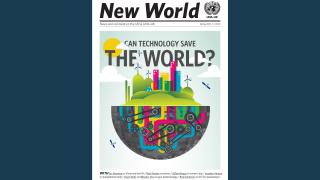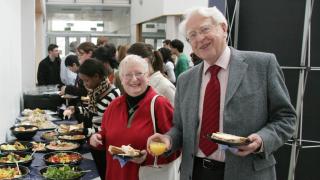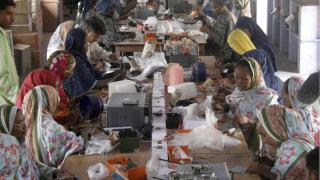
This edition of New World addresses the relationship between the development of new technologies and the creation of a better world for all its inhabitants. Not only are these diverse articles interesting in their own right, they also raise the general question of whether scientific progress can make up for deficient political decision-making. It is all too probable that the problems we share at the global level – in the security, resource and environmental fields – will not be remedied by wise politics alone.
Why not? In resource use, governance, conflict resolution and progress towards decent living standards, policies that could deal with most of the trouble that is brewing in the international arena can be, and have been, devised. But agreeing and implementing them feels like a remote prospect.
On issues that require far-reaching compromises, nationalistic and short-term preferences tend to dominate. Advanced democracies have shown themselves deficient in international altruism and longer-term strategic thinking. Less advanced countries, whether democracies or not, lack the capacity or the goodwill to take the lead, for understandable reasons. It increasingly seems, as the third millennium evolves, that we must adapt to the likelihood that environmental, health, security and resource problems, not to mention ethical ones, will persist at a highly threatening level.
Can science and technology help to fill the gap in political far-sightedness? Technological development has transformed human existence, at least for a majority of the earth’s population, with the rate of progress surging during the industrial revolution. Its speed never stops increasing. Yet the 20th century showed us that this did not prevent catastrophic breakdowns in international peace and stability. And most new technologies have double edges: they can promote huge benefits or be used malignantly or dangerously.
Nuclear technology and GM crops are clear examples. What a dramatic step forward it would be if nuclear fusion could be used safely, or if agricultural yields could be vastly multiplied. Advanced monitoring and transparency systems could transform the implementation of human rights norms; and automated weaponry, if used solely for defensive and policing purposes, could take the blood out of military effectiveness. Greater understanding of genetics and micro-organisms is already changing the nature of medicine. What a bright world it could be!
Yet each of these developments could be used to magnify the repressive power of governments or to create new instruments of harm. For all the euphemistic correctness in 'Ministries of Defence', no security system spurns the construction of offensive capability. Technology itself, in the electronic, nanotechnology and cyber fields, has become an instrument of military power. There are some benign areas, as in conservation, transparency, agricultural efficiency and electric power. But the whole advance of science and technology requires a context of effective regulation and supervision, as well as international cooperation.
So good politics remains essential. We certainly have to avoid the complacent thought that technology will save us where policy-making cannot. The right use of scientific progress depends on good policy decisions, and only time will tell whether it will help us move towards a more civilised world. All the more reason, then, to lobby vigorously for the right policy choices. That will never stop mattering.












